One of the best things, and worst things about Hashimoto’s, is that your diet has a powerful impact on how you are feeling.
Unfortunately, this is a double-edged sword.
Good in the sense that you do have some control over how you are feeling.
But bad in the sense that you are accountable for everything that you put into your mouth.
Feeling like eating a donut? You better be careful because that processed sugar and gluten may flare up your immune system.
Want to eat a quick bowl of cereal for breakfast? You should think twice because the dairy in there may increase your TSH.
Think you’ll be safe by just sticking to vegetables? Well, those contain goitrogens which may block iodine uptake.
It may sound confusing, but it’s really not.
As far as all food groups go, these are the most likely to make Hashimoto’s worse:
#1. Gluten
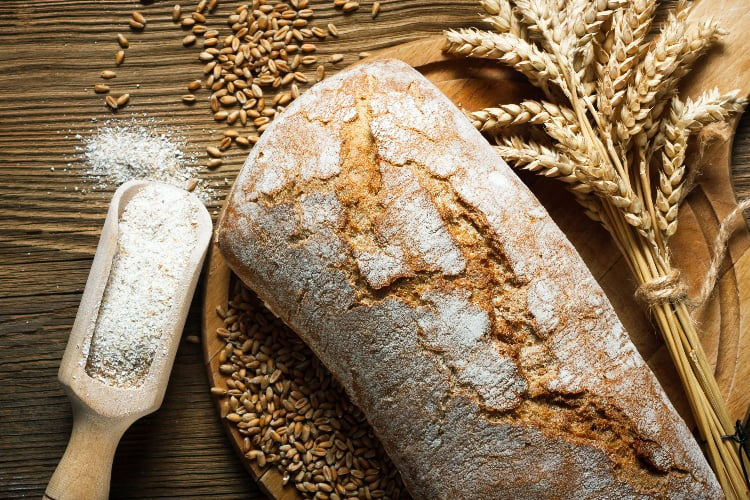
Not everyone with Hashimoto’s will have to avoid this protein found in most grains.
But it is true that many patients with Hashimoto’s experience several benefits when they do.
Here’s what we know about gluten:
- First: There are two types of gluten sensitivity. One is the autoimmune disease known as Celiac disease. And the other is the nonautoimmune disease known as non-celiac gluten sensitivity. Both of these conditions occur more frequently in patients with Hashimoto’s (1) compared to the average population.
- Second: In certain people, even otherwise healthy people (2), gluten may contribute to increased intestinal permeability and inflammation in the gut. So it may not be healthy to consume even if you don’t have a true gluten problem.
- Third: The gluten content of modern wheat has increased due to genetic hybridization (3) and it’s more difficult to digest and process compared to ancient grains.
- Fourth: Many patients with Hashimoto’s report an improvement in their symptoms when going gluten-free and some studies also show the same thing (4).
All that said, let me be clear:
Gluten is not necessarily or automatically something that every patient with Hashimoto’s should avoid.
But it is absolutely worth going gluten-free for a short period of time to see if it works for you.
Even if you don’t truly have a problem with gluten, you will most likely see an improvement in your symptoms simply because removing gluten happens to also remove plenty of other unhealthy foods.
If you are someone who loves to bake then try an ancient grain in place of modern wheat like Kamut or einkorn.
#2. Iodized Salt
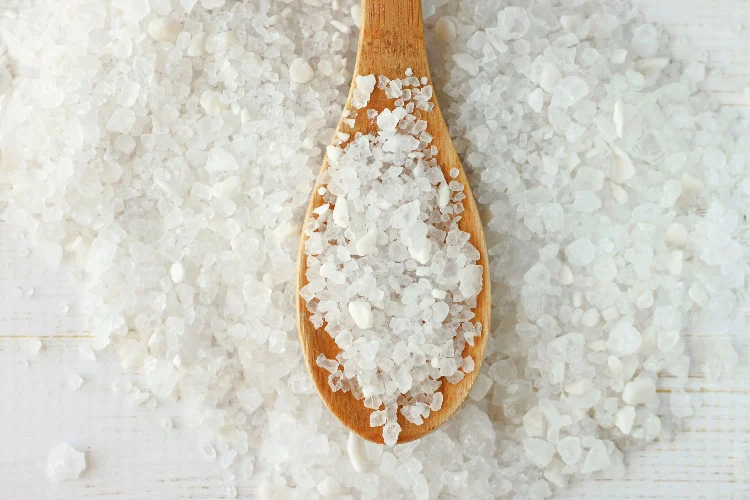
Next on the list is iodized salt!
But I don’t want you to confuse iodized salt with iodine because they are not the same.
Iodized salt is simply salt that has been fortified with iodine.
As a patient with Hashimoto’s, you’ve probably been told that iodine is dangerous so it makes perfect sense that you would want to avoid iodized salt.
But if you are thinking this way then you are thinking about it all wrong.
Iodine is not automatically harmful to patients with Hashimoto’s, but it does have the potential to cause issues (5) if it is used incorrectly.
The reason I recommend avoiding iodized salt is that consuming iodine in this way may be harmful.
But it’s not harmful because of the iodine.
It’s harmful because consuming it this way means you are taking a dose of iodine without additional protective nutrients such as selenium.
We have good reason to believe, at least in some patients, that Hashimoto’s may be triggered due to an imbalance in iodine and selenium.
Iodine promotes the production of thyroid hormones, but it must be balanced with the protective antioxidants created by selenium.
If you take one without the other, you may tip the balance in favor of thyroid gland inflammation instead of thyroid gland protection.
For this reason, it’s always a good idea for patients with Hashimoto’s to consider taking both selenium and iodine together.
Unfortunately, iodized salt only has iodine.
But let me be clear:
Iodine is still required by all human beings, even those with Hashimoto’s and this isn’t something you can get away from.
You just need to make sure that you aren’t taking too much.
#3. Dairy Products
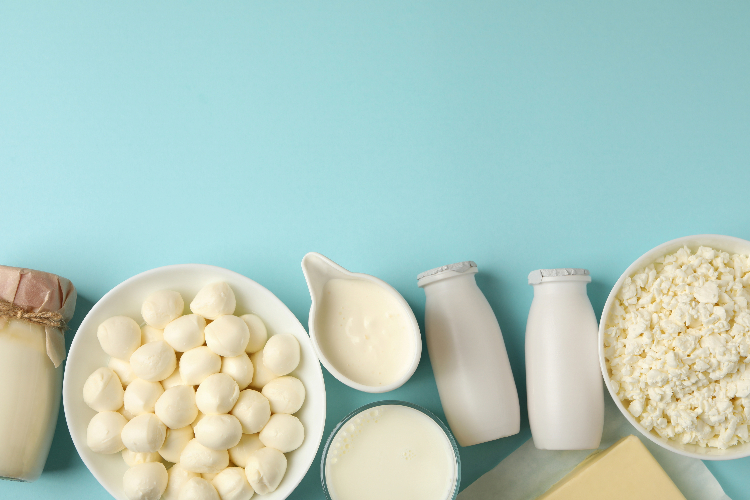
A lot of patients with Hashimoto’s will see an almost immediate improvement in their symptoms after removing dairy from their diet.
Why?
Well, for starters, a huge percentage of people have problems digesting dairy sugars like lactose which is as high as 70% in some studies (6).
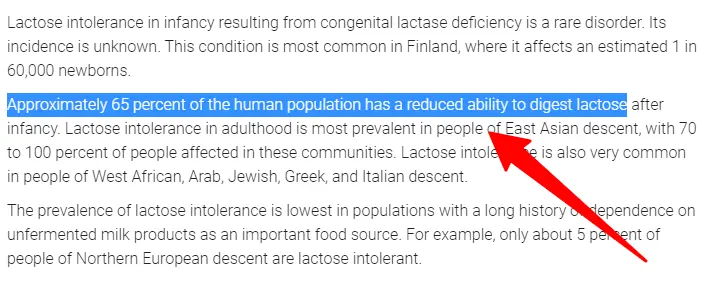
But if you dig a little deeper, you will also find that many people have problems digesting dairy proteins like casein. And this number is as high as 20% of the population.
How does this relate to patients with Hashimoto’s?
It’s not as clear as you might think, but here’s what we know:
Studies seem to suggest that there’s something in milk and dairy products that has a negative impact on the immune system and the thyroid gland, at least for some patients.
Because when they remove dairy from their diet, they see a reduction in thyroid antibodies and a reduction in TSH (7).
The current thought is that, at least for some people, sensitivities to lactose and casein may lead to inflammation in the gut which promotes immune dysfunction.
But there are other potential factors as well, including the fact that dairy proteins have a structure similar to proteins found in the body which may increase the risk of cross-reactivity between the immune system and your own tissues.
On top of this, dairy may contain both animal hormones and antibiotics which may act as endocrine disruptors in humans.
The long story short is that you may find significant improvement in your Hashimoto’s by avoiding dairy products.
If you don’t want to remove all forms of dairy, then consider these options:
- A2 protein milk (8)
- Lactose-free milk (9)
- Hard cheeses (10)
- And feta or goat cheese
These options have less lactose and/or a different composition of casein and tend to be better tolerated.
Much like gluten, the problem with dairy is about how it has been modified and altered over time so your own personal tolerance may vary from someone else.
#4. Soy
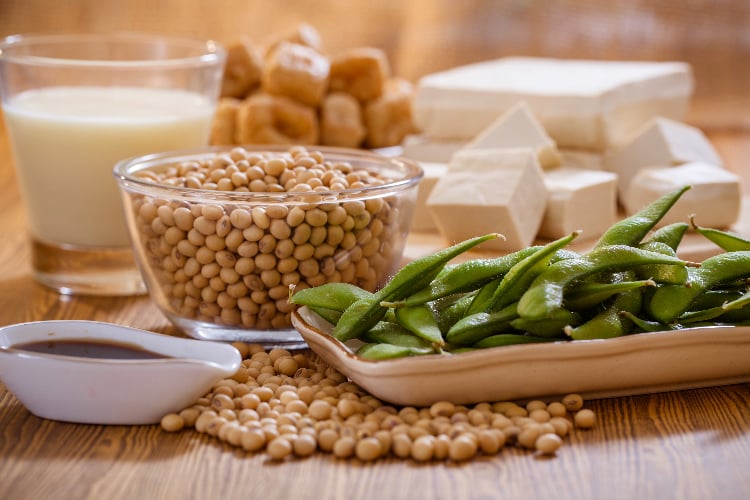
Why is soy a problem?
Well, on one hand, there’s no question that soy contains powerful bioactive compounds in the form of soy isoflavones which have been shown to support bone health and heart health (11) and provide other benefits.
But it’s also just as true that soy may promote problems for patients with Hashimoto’s for three reasons:
#1. It may have an estrogenic effect on the body.
This is good if you are in a low estrogen state like menopause, but not so good if you already have a hard time metabolizing and eliminating estrogen like many thyroid patients.
#2. It can act as a goitrogen thereby blocking iodine uptake into the thyroid gland.
Patients with thyroid problems already have a hard time creating thyroid hormone and this blockage can make that problem even worse.
And #3. Most soy is heavily processed and genetically modified.
Processed foods result in inflammation and contain fewer micronutrients.
The answer to the soy problem is to pay attention to both quantity and quality.
If you want to consume soy then stick a limited amount.
And it’s best if that amount is either fermented or comes as a whole food source that has not been genetically modified.
By the way, if you stick to whole foods like I recommend here then this really isn’t something you have to worry about.
#5. Coffee

Don’t shoot the messenger but coffee is something that you should do your best to avoid if you have Hashimoto’s.
The reason is two-fold:

Coffee, and the caffeine found inside it, may reduce thyroid medication absorption (12) and may have an impact on pituitary function.
One case study showed that a patient taking levothyroxine saw a huge drop in her TSH when she stopped taking her medication with coffee.
And in this instance, she was only taking her medication with a small sip.
But beyond this, caffeine also has a stimulating effect on cortisol and other adrenal hormones (like adrenaline) which is why so many people see a boost to their energy when they take it.
The problem is that this is not a natural source of energy and it may put strain on an already strained adrenal system leading to more fatigue down the road.
Some people will suggest that low doses of coffee and caffeine may have a beneficial effect on thyroid function, which may be true in certain populations.
But I’ve found that people often blow through this therapeutic threshold thereby causing more harm than good.
If you are a coffee lover then my recommendation is to stick to decaf and keep your total caffeine intake somewhere between 25 to 50 mg per day.
But I will tell you from personal experience that many thyroid patients report having more energy, better sleep, and less stress after stopping coffee.
#6. Alcohol
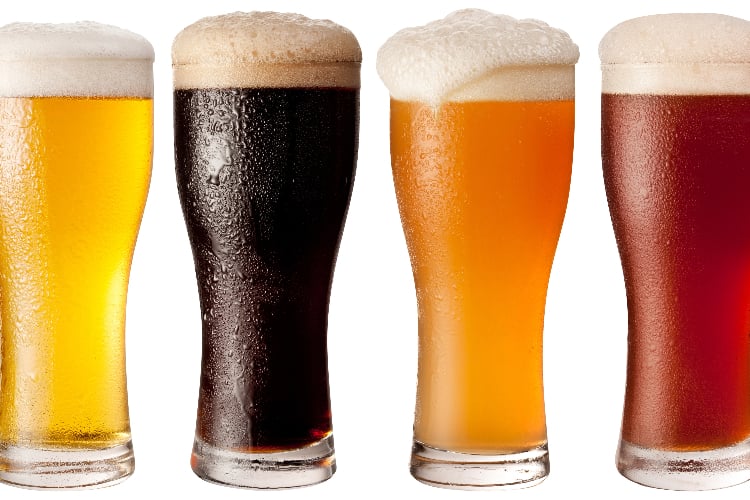
You can and should think of alcohol as a poison to your thyroid gland (13).
It not only has the ability to poison your cells, it also has a direct negative impact on your pituitary gland.
It also damages liver cells which are vital for thyroid hormone processing.
In fact, your liver is the location where the majority of T4 in your body is converted into T3.
In other words, the more damage to your liver, the less active your thyroid will be.
There’s a lot less nuance here than there is for some of the other food groups we’ve discussed and it’s hard to make a case for any alcohol consumption.
For this reason, just avoid it 100%.
Your thyroid will thank you as well as the rest of your body.
#7. Processed Foods
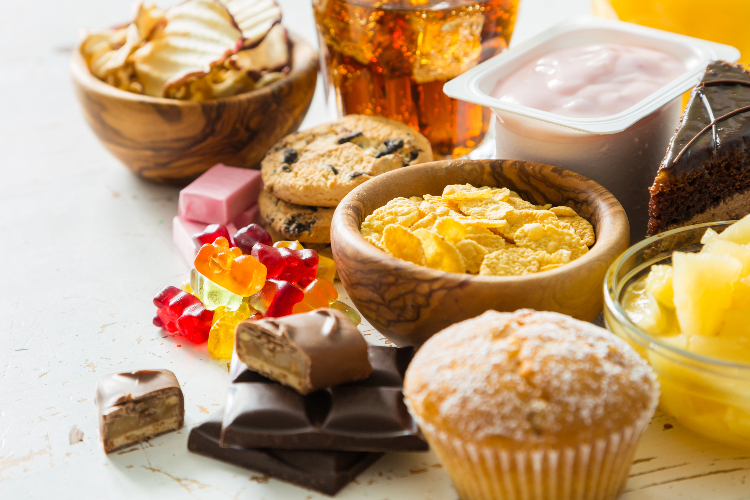
This should be another obvious one, but it’s missed by many thyroid patients.
Why?
Because research indicates that the average person has a hard time knowing what exactly processed food is.
Just so you aren’t confused, here’s the simple definition:
Ultra-processed foods are foods that you would be unable to make in your own home.
That’s it.
These foods are laden with chemicals, preservatives, sweeteners, flavor additives, and other artificial ingredients which make them less like a food and more like a chemical.
And the consumption of them has disastrous effects on both your overall health as well as your thyroid.
Reducing your consumption of these foods can naturally improve your thyroid, reduce inflammation, help you lose weight, and normalize food cravings.
If you aren’t avoiding ultra-processed foods, now is the time.
#8. Refined & Processed Sugar
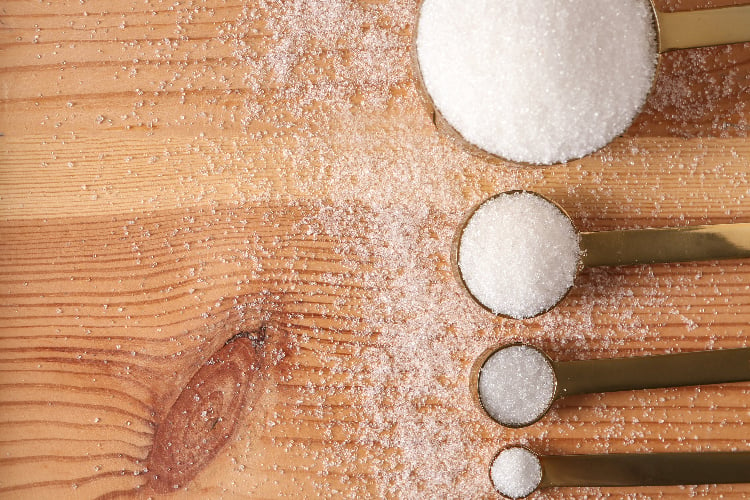
But let me be clear here and draw a distinction between processed sugar and whole-food sources of sugar.
One is bad, the processed version.
And one is perfectly fine, the whole food version.
Processed and refined sugar that is added to processed foods and beverages can increase your already increased risk of diabetes and insulin resistance if you have a thyroid problem.
But whole-food sources of carbohydrates such as fruits and 100% fruit juice are not only perfectly safe to consume but are even healthy for your thyroid gland.
The processed types of sugar you want to avoid include:
- Table sugar
- Brown sugar
- Powdered sugar
- Corn syrup
- High fructose corn syrup
And the whole-food sources you shouldn’t be afraid of include:
- Honey
- Date syrup
- Maple syrup
- Agave syrup
- Fruits
- And 100% fruit juice
You can consume up to 100 grams of these foods each day without worrying about their risk on blood sugar or weight gain (14).
But the same is not true of the processed sources of sugar. Those will cause problems.
#9. Industrial Seed Oils
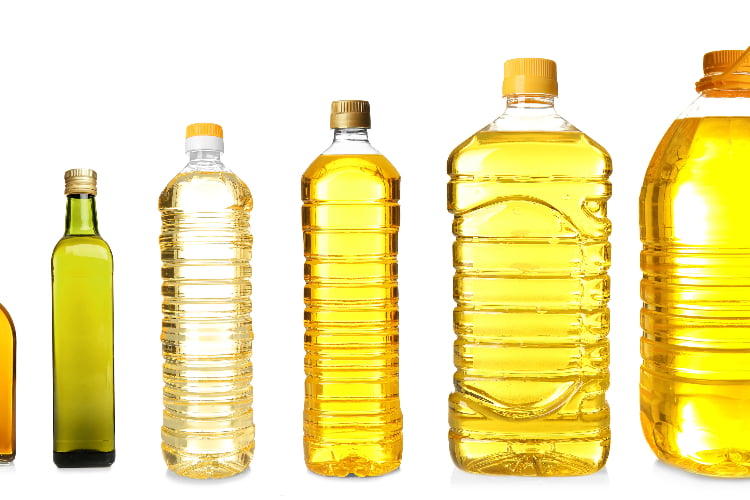
Seed oils and their impact on health is a hotly debated topic.
Depending on where you look, and who funds the study, you’ll hear that they are either a heart-healthy superfood or an inflammation-promoting junk food.
If you have a thyroid problem, I would recommend you avoid these oils like the plague.
Here’s why:
- These oils are heavily processed in ways that make them impossible to create in your own home. If other ultra-processed foods are unhealthy and should be avoided, why are these somehow exempt?
- Seed oils have a less stable structure compared to other fats which means they are more prone to oxidation and have a shorter shelf life.
- When heated and reheated, they can create toxic byproducts, like aldehydes, that have been shown to cause harm to the body.
- They contain a high amount of omega-6 fatty acids which may contribute to inflammation.
Because there are other whole food sources of fats that are readily available, why even take the risk of consuming these fats?
It just doesn’t make sense.
It’s been my experience that thyroid patients often see a huge improvement in their health when they eliminate these oils.
But if you want to keep them in your diet, for whatever reason, make sure to limit your exposure to them to no more than 1 tablespoon per day.
If you aren’t sure what a seed oil is, here’s a list:
- Soybean oil
- Peanut oil
- Corn oil
- Safflower oil
- Wheat-germ oil
- Canola oil
- Sunflower oil
- Cottonseed oil
- Grapeseed oil
- Rice bran oil
You’ll find them in pretty much everything including all processed foods and most foods found in restaurants.
In my opinion, it’s easier to remember the list of fats and cooking oils that you should use instead.
Here’s that list:
- Extra virgin olive oil
- Coconut oil
- Butter from grass-fed cows
#10. Certain Vegetables (If Eaten In Large Amounts)
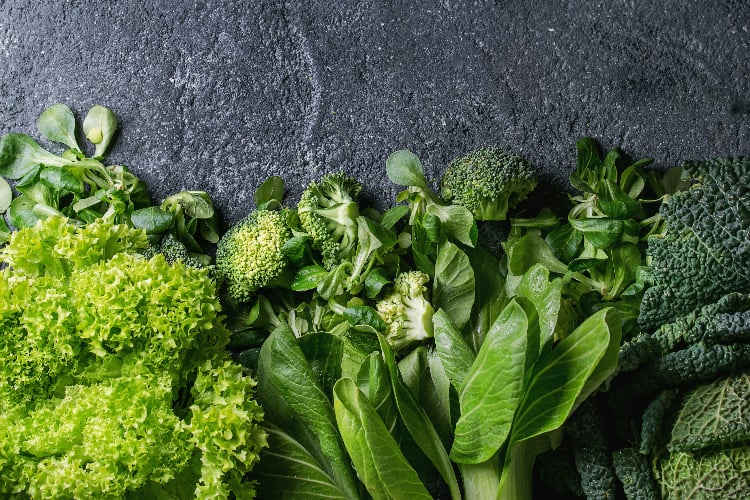
This is sort of a sneaky addition, but it’s worth mentioning because patients with Hashimoto’s often get confused by it.
Some people will say that vegetables should be avoided if you have a thyroid problem, but is this really true?
Not at all.
Vegetables are amazing for your thyroid health and you should be eating 4-5 servings of them each and every day.
But what is true is that certain vegetables contain goitrogenic compounds which may serve to block iodine uptake into the thyroid gland.
Yes, this is a slight potential negative to their consumption, but their overall benefits easily outweigh this.
In addition, you can easily negate this effect by doing two simple things:
First, boil or steam your veggies before you consume them.
And second, increase your iodine intake.
Properly preparing your veggies can reduce goitrogen content by up to 50% and taking more iodine means you can outcompete them even if they make it through.
So, no, don’t avoid your veggies if you have Hashimoto’s!
Final Thoughts
You can do a tremendous amount of good for your thyroid by avoiding the wrong foods and eating the right foods.
But your diet shouldn’t be the only tool you use.
In addition to diet, there are some supplements that have been proven in controlled trials to lower thyroid antibodies,
And if you want to see a list of the most effective, make sure to check out this article next.
Scientific References
#1. https://pmc.ncbi.nlm.nih.gov/articles/PMC9312543/
#2. https://pmc.ncbi.nlm.nih.gov/articles/PMC11053402/
#3. https://pmc.ncbi.nlm.nih.gov/articles/PMC6769531/
#4. https://pubmed.ncbi.nlm.nih.gov/37554764/
#5. https://www.ncbi.nlm.nih.gov/pmc/articles/PMC4192807/
#6. https://ghr.nlm.nih.gov/condition/lactose-intolerance
#7. https://pubmed.ncbi.nlm.nih.gov/24078411/
#8. https://pmc.ncbi.nlm.nih.gov/articles/PMC7766938/
#9. https://pmc.ncbi.nlm.nih.gov/articles/PMC7318541/
#10. https://pmc.ncbi.nlm.nih.gov/articles/PMC4586535/
#11. https://pmc.ncbi.nlm.nih.gov/articles/PMC6683102/
#12. https://pubmed.ncbi.nlm.nih.gov/18341376/
#13. https://pmc.ncbi.nlm.nih.gov/articles/PMC3743356/
#14. https://pubmed.ncbi.nlm.nih.gov/26091353/
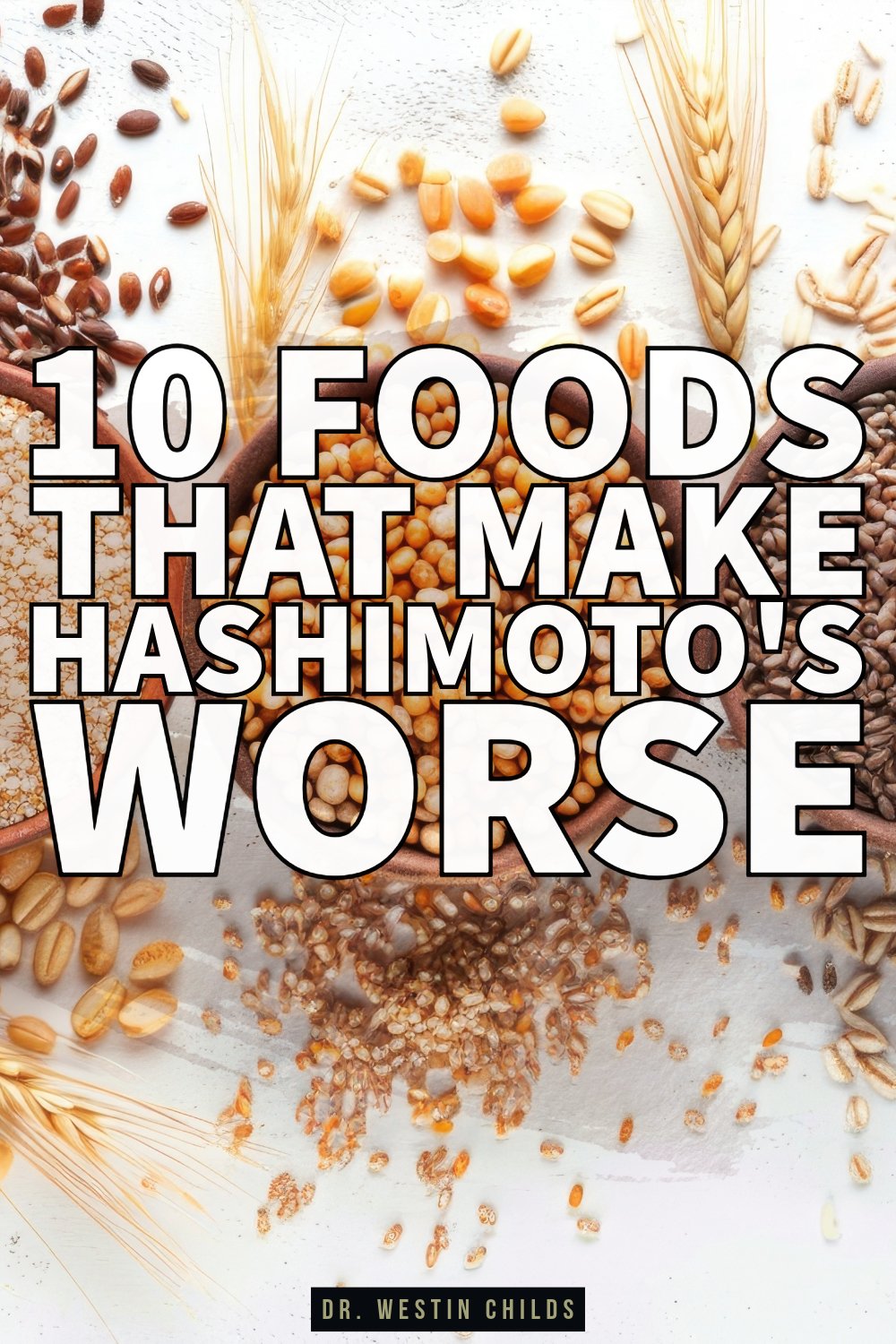
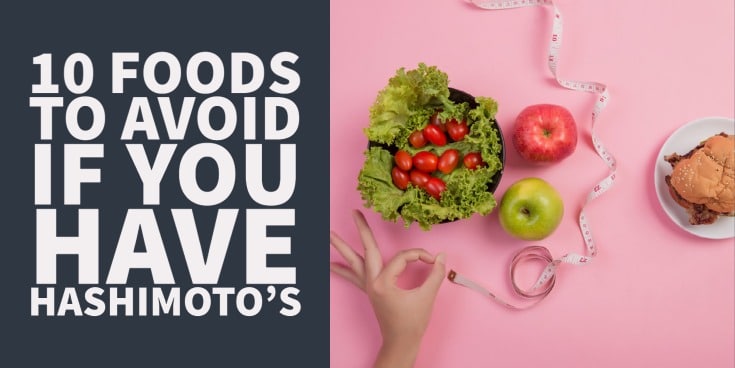

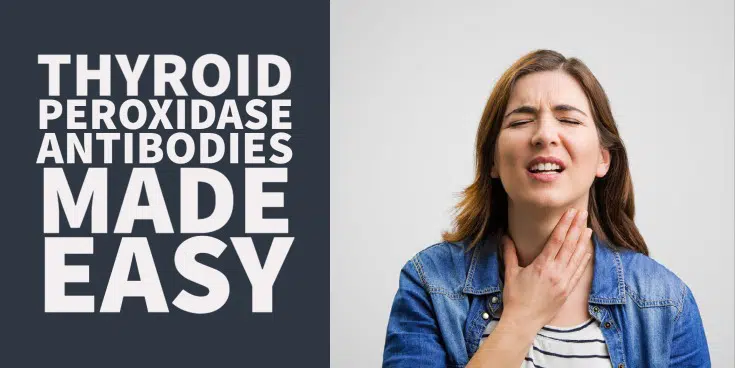
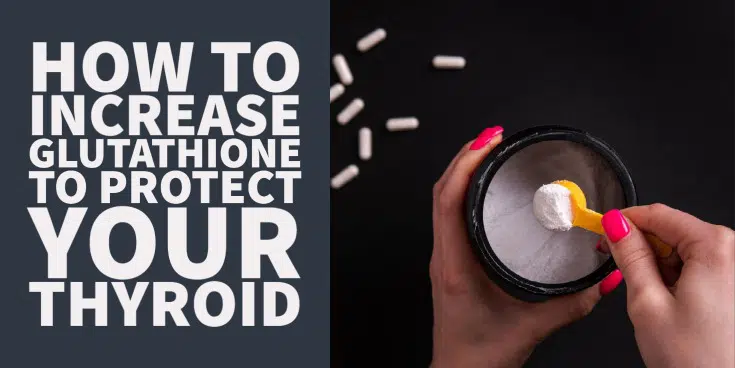
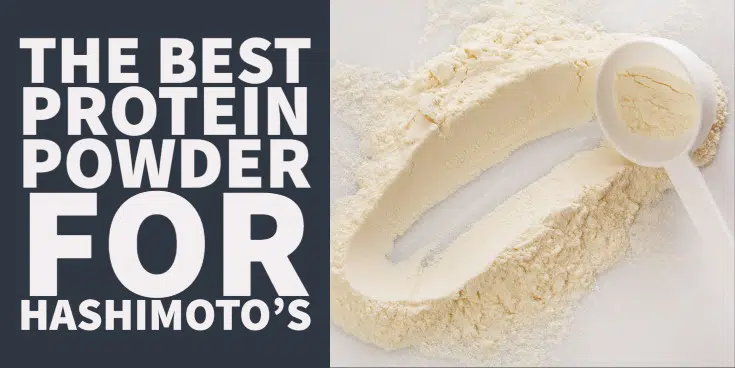
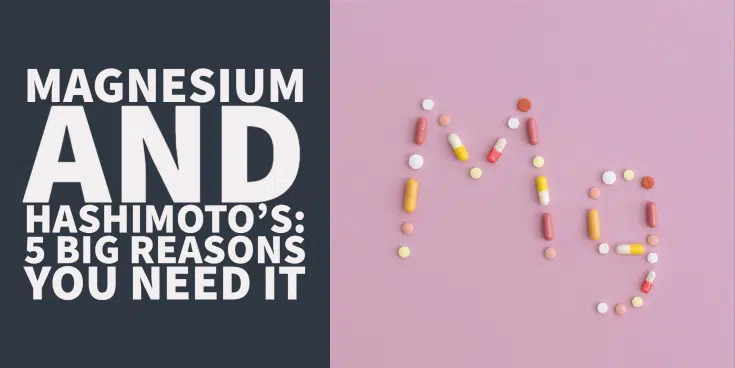
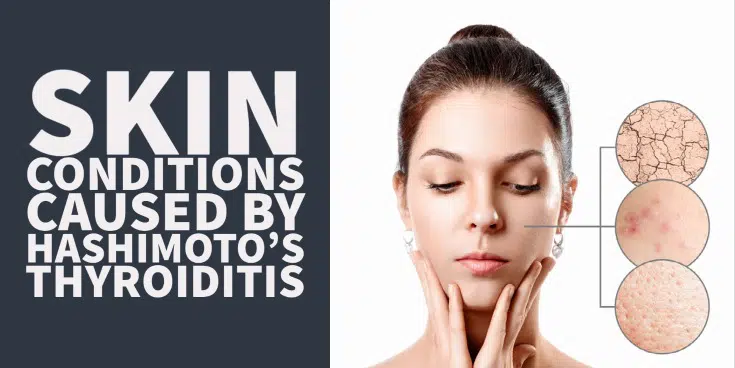
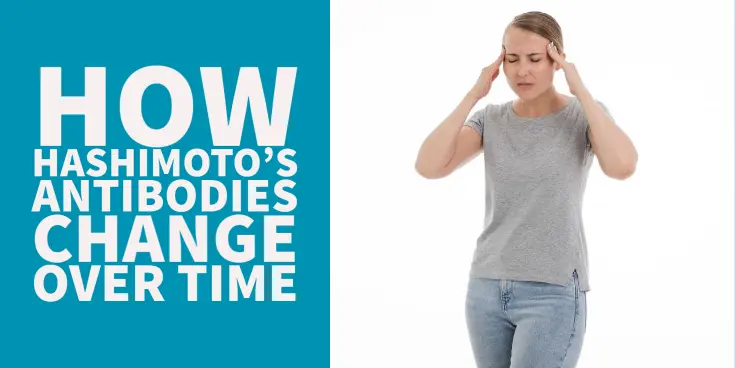

My heart sank at Coffee.
Hi Jessica,
Don’t shoot the messenger!
Can you suggest coffee alternatives? I read black tea has oxalates (as well as caffeine). I know it sounds strange but my personality is flat without just a few ounces of coffee in the morning. And I struggle to focus.
Teecino Dandelion dark roast.
Your personality will shine through once you are over the withdraw from coffee. 🙂
Chicory herbal tea chocolate tastes like coffee. Also dandy blend made from dandelions tastes like coffee.
Coffig is an excellent alternative to coffee. It’s caffeine free and made from 100% figs. (Sounds weird but it’s actually pretty good)You can get this on Amazon. And for a non dairy no sugar added creamer I highly recommend Thai Kitchen brand unsweetened coconut milk. Keep it in the fridge, shake it and it’s really close to tasting like half n half!
Dandy Blend is a good coffee alternative. I have mixed it with coffee to help wean from coffee.
I have been trying to cut on my coffee and usually it would be unsuccessful because I would feel tired and have a headache. This passed week I felt super tired so instead of 2 cups of coffee I had to drink 3 cups. Headache 3 days in a row. I even started diagnosing myself with all kind of illnesses and started looking for a mold in the house. Day 5 I was kind of feeling ok, no headache, a little bit tired but not too bad. My husband was feeling the same by the way. Turns out we both were drinking decaf coffee that we got by accident. So basically after 3-4 days of coffee withdraw most likely you would not need coffee at all. Mate tea is an alternative. Also, try cleansing (just be smart about it), Celery juice does the best. There is a book by Medical Medium called Thyroid healing. You can buy a used one for less. Good luck!
Decaf maybe? I am disappointed about soy but I had it somewhere before
How about tea.
What about good quality decaffeinated coffee?
Hi Connie,
I don’t really see the benefit of coffee in general so I recommend avoiding all types.
Mine also!
These are the exact foods and beverages my body will not allow me to consume! Amazingly accurate!
Is it just the caffeine that’s a problem or the coffee itself? Is green tea an option?
Oh one more ? Is all dairy created equal since products like cheddar cheese have trace amounts of lactose?
HI Cheyanne –
Unfortunately it is all dairy as the problem is casein, the dairy protein, not lactose. Casein is similar in molecular structure to our thyroid tissue and when we eat dairy, the presence of it activates the immune system against it and against our thyroid, resulting in more auto-immune damage to our thyroid.
For more info see Dr. Kharrazian’s book, “Why do I still have thyroid symptoms?”
is goat milk ok or not and are all these foods bad for hypothyroidism which I have I don’t have hashimotos
Hi Rosalind,
Some people can tolerate it.
May I ask what your thoughts are on raw milk? Do the benefits of raw outweigh the risks?
Hi Reci,
Raw milk is something that can be used if the individual tolerates it.
Is decaf coffee ok or is it considered the same as regular?
Good information! Do you think a plant based diet is okay to follow? I have vitiligo & hoping this will stop the spreading.
I have the same questions regarding tea and cheese Does decaffeinated tea matter? No cheese, really?
Regarding natural sugars, what about Erythritol or Stevai? As for my Hashimotos, I’ve found avoiding gluten and whey protein to be helpful – no bloating, gas and accompanying blah feeling. I tried strict keto (20g carbs/day) but my TSH & T3 dropped really low. I’m not sure if it was due to the carb restriction or calorie restriction (body goes into starvation mode which is similar to hypothyroidism). Since then, I’ve found a modified ‘keto’/lower carb works for me (40-50g carbs/day) – I don’t get into ketosis, but it actually avoids most of the foods Dr Child’s lists in his post.
Super Helpful article and comments! Thank you!
I have eliminated gluten from my diet for the last two years. And have been vegan for about seven years. The shocker for me was the soy products. I like tofu and always buy organic tofu and tamari sauce. I don’t eat raw foods too often. Even cook my salads. Not a coffee drinker, it’s green tea for me. I will try and stop the soy for six months see if I feel better. Also notice rice makes me constipated if I have too much. Try and save my rice consumption for spring rolls. The oils were an eye opener also.
Dr Childs, can you please comment on Bulletproof Coffee by Dave Asprey. I believe he had thyroid issues before drinking it. I have been drinking this formulation for the past 6 weeks with no ill effects. Of course, test results may reflect otherwise. But generally, I do not have the issues I would normally with regular coffee such has anxiety and inflammation. Thank you!
Eliminating BOTH coffee AND alcohol. Oye Vay. Please, provide alternative options as solutions other than just stop them all together. I appreciate your guidance on this.
I had 2/3 of my Thyroid removed when I was 9 because I have Hashimoto’s disease!! I now have a small speck of a Thyroid left!
I’ve been drinking coffee since I was 10 and the longest I went without was 3 months. It’s more psychological than physical for me. It was how my family socialized. I’ve tried chickory-based coffee substitutes like Teecino that are pretty good. They help but for now, I’m allowing myself 1 cup of 1/2 caf in the morning.
Is this working for you? I only have a cup or maybe half a cup in the morning
Would love to hear a reply to the questions about coffee. Is decaffeinated ok to drink? and is drinking caffeinated teas a no-no as well?
Hi Lorraine,
I don’t recommend decaf or regular coffee.
Because it’s the pesticides on the coffee beans that is the real problem. I drink caffeinated tea and take a caffeine pill 200 mil. A day with no side effects.
Great info!!!! I just found your website today and saw several areas I would like to comment as well as ask questions. I’ve had hypo since 1996. First had graves and then Hashimoto disease. My TSH was 150 two weeks ago. Have been on Amour 120 for years. Looks like maybe some of these foods could have been what pushed my TSH to 150 but not sure. I am now taking 180 mg which may be a tad too strong because in the last 6 days I’m not sleeping more than a few hours at night. Can I cut the pill and take 135? Thank you for this wonderful site. Happy New Year everyone!
Hi Kim,
It’s definitely possible to cut your tablet in half or quarters but you should touch base with your doctor before you alter your dose to make sure it’s safe for you 🙂
im devastated.
I seem to have cross over symptoms. Can not handle feeling cold all of the time, not able to lose weight. At times racing heart…. T4 so called normal range and TSH 0.02. Lots of hair lose. My doctor says my thyroid is under active. Has never mentioned Graves or Hashimoto disease so not sure if this info is for me or not? Please advise many thanks.
Hi Jayne,
It depends on whether or not you are taking thyroid medication. If you are then you may be taking too much, if you aren’t then you may be hyperthyroid instead of hypothyroid.
Make sure that your doctor is testing your antibodies!
I have been on Thyroid medication for about 30 yrs. My dosage has gone up & done dramatically due to my weight & diet. I was as high as 225 I’m now at 112. But I was eating terribly, had gained weight. Got diagnosed with Hashimoto and I got a hold of your recommended diet and have lost 13 lbs so far. Thank you. But it’s really been challenging. I notice that you say to stop gluten intake. But what about grains & legumes? What about rice? White or brown or etc? Help.
Hi Jill,
There are no hard and fast rules but, in general, patients with Hashimoto’s tend do better off of grains and legumes. White or brown rice is more up to you, your sensitivity to insulin, and other factors. In general, there are far better sources of carbohydrates than rice, though, which is why I don’t typically recommend it.
Chocolate seems to start a flare up as well as everything else you’ve mentioned
Hi Nichole,
It’s definitely possible you could be reacting to chocolate but I would offer that it’s likely you could tolerate high quality chocolate that isn’t processed and alkalized. Non-alkalized cocoa retains it flavonols which impart powerful benefits to those who take it, making cocoa a literal superfood. The problem with most chocolates is that these powerful ingredients are removed/damaged during the processing of cocoa into the chocolate we consume in candy bars and in chocolate chips. The chocolate we consume is typically loaded with sugar, processed oils, and depleted of its anti-inflammatory ingredients which often makes it pro-inflammatory instead of anti-inflammatory.
For these reasons, I’ve included dark chocolate and non-dutched cocoa powder in my Perfect Thyroid Diet: https://www.restartmed.com/perfect-thyroid-diet/
I eliminated gluten and dairy for one year and found that gluten was causing asthma and my seasonal allergies. I added dairy back and found no change other than my gut is visibly extended (inflamed) although I dont feel different. It probably is affecting my gut lining, but who knows. My other big one I need to avoid is canola oil. This is in everything (covering my almonds, tortilla chips…) and it was very hard to pinpoint on my own. Keeping a food journal was how I discovered it. Reading labels is a MUST. Canola makes me asthmatic. So do the chemical preservatives in sausages, bacon. Avoiding certain foods is key to feeling well for me.
Hi Amy,
Thank you for sharing! Keeping a food journal is definitely helpful and a great strategy.
Hi Dr Childs
Thank You for this great information…. I’m looking into this now because I had an attack last night 3-4 hours after eating, (like 50 knives poking in my stomach, bloating bent over in pain). Friends brought over air fried chicken wings and steamed edamame beans to watch the game. the wings were heavily coated with spices and garlic from costco no idea what exactly they were cooked when arrived. I’ve been absolutely GF for over 10 years. many things you’ve listed here has reminded me how far I’ve drifted from an alkaline friendly diet… OK the Monster Java has to go… but please tell me about edamame (steamed whole soy beans with kosher salt) Thanks Denise
Is safflower butter ok? My naturopath told me to take a tablespoon everyday. She is helping me with my thyroid/hashimoto’s.
Would be nice if NDT, didn’t have lactose added has a diluent. Would this cause issue for Hashimotos?
Hi Nadine,
Yes, it causes issues for many people.
Dr. Childs,
I have no thyroid and take Synthroid. Do I still need to avoid all these foods as well?
Thanks,
Susan
Hi Susan,
You have a different list of foods to avoid 🙂 This is specific to those with Hashimoto’s thyroiditis the autoimmune thyroid disease.
Can you post the list of foods to avoid for those with out a thyroid?
Thanks.
Hi Shellie,
Sure, I will add it to the list of future blog posts!
Not a coffee drinker and have been doing my best to stay away from processed food and now gluten but no alcohol?
Hi Sandra,
Definitely no alcohol! 🙂
So, eliminate dairy, but cows butter is ok? Confused. Everything g else makes total sense, if very difficult to adhere to!
Hi Kim,
Some people can tolerate butter from grass-fed cows but not everyone. You’ll have to play around with it to see which group you fall into. It’s often best to eliminate dairy 100% for a period of time and then add it back in slowly starting with butter then cheese then liquid milk.
I was diagnosed with hypothyroidism 17 years ago. I was given levothyroxine and used it for 15 years until I found a Hormone doctor. After my visit with the hormone doctor, I was told that I have Hashimoto. Then prescribed Nature Thyroid. It seemed to work along with the other supplements that were prescribed. Last year Natur thyroid was recalled, I am back on levothyroxine. I feel awful. I am also experiencing muscle and joint aches in my knees, shoulders, backs, and feeling depressed. I am now looking to find another doctor …. one who is experienced in thyroid care. Your articles give me hope. Thank you.
Great article, I like all of the options, but wonder if tea can be enjoyed as an alternative to coffee?
Yes, Herbal tea can be used as an alternative.
I’m a little confused. You said no dairy product on #3, but then recommended butter from grass-fed cow on #9. Isn’t it still a dairy product?
Also, I take gluten a casino pills on the occasion I decide to have something with that in it. Does this negate ill effects since I feel good, or is the damage still being done even if I can’t feel it?
Hi Karinne,
It is technically dairy but not in the same ballpark in terms of its effects on the body as other liquid forms of dairy. If you can’t tolerate the grass fed butter as a form of fat then you can use the other fats for cooking/baking 🙂
I think I will try that, then! In regard to my other question…I take gluten a casien pill and digestive enzymes on the occasion I decide to have something with that in it. Does taking these pills negate side effects since I don’t hurt eating these foods on these pills, or is the damage still being done?
Hi Karinne,
They may help somewhat but definitely do not protect you from the issues that these foods can cause.
thank you for taking the time to reply! Much appreciated 😉
I’m so excited you replied! 🙂 thank you! I’m a big fan and have been following you for years!! What are your thoughts on my other question about the gluten and casien pills?
Dr Westin – are “decaf” black teas ok? Or do I need to drink only plain herbal combos?
What do think? I have Hashimotos. Thanks for your reply.
Hi Suzanne,
It all depends but I typically recommend avoiding all coffee and anything with black/green tea.
Not surprised by the food list. I’ve been recently diagnosed with Hashimoto’s, hypothyroidism, and high estrogen, no testosterone. My functional med doctor prescribed the AIP diet, which I’ve done, but after 6-7 weeks, my blood tests revealed an increase in thyroid antibodies. How can you talk to your doctor to share concern that other treatment options might need to play a role in healing, while keeping lifestyle changes? I feel like each time I talk to my doctor, it’s rushed and she throws more supplement suggestions my way.
Dr. Childs,
How do you feel about dairy in the context of non-Hashimoto’s hypothyroidism? Obviously there can be many possible factors involved but do you have any general recommendations? I don’t have hashimoto’s but am pretty addicted to cottage cheese and plain Greek yogurt. I also struggle with bulimia (15 years) and have not been able to recover despite trying everything under the sun.
Thanks!
Josh
Hi Josh,
My general recommendation in that setting would be to use dairy products if you can and if you’ve tested to make sure you can actually tolerate them. From my experience, most people can manage solid dairy products but don’t do well with liquid dairy products.
You are exactly right about this. In 2017, I eliminated gluten and in 2018 eliminated all the rest of the list. My autoantibodies decreased from over 600 down to the 200’s. I am in stage V Hashimoto’s, and I have also developed autoantibodies for RA in the past year; however, I have negligible inflammation and no joint pain. I decided to make one change this year, and that is to cook most of the vegetables I eat, instead of eating most of them raw in salads. Instead I make skillets with leafy greens in place of a salad. So far so good. My Fitbit tells me I am in excellent health for my age.
Hey Doc. Thank you for the info.
I went to look up a list of goitrogens and found an infographic that said alcohol, caffeine and carbonated drinks are bad for Thyroid health.
I do really enjoy some booze and wine (I’m working on it), I LOVE tea, and I have a fairly extensive seltzer habit.
Am I SOL?? I did read what you wrote above about alcohol being poison. Are there any that are healthier? (I don’t have any truly mixed drinks, I get that alcohol and sugar, like a margarita, is killer.)
Thank you!!
Hi Amy,
It really depends on how you are defining goitrogens. While those are not true goitrogens they are goitrogens in the sense that they are not great for thyroid health in general.
I have Hashimoto’s Thyroiditis and also Sjogren’s Syndrome, another autoimmune condition similar to Hashi, but Sjogren’s manifests as dry mouth, eyes and difficulties of the bodies ability to effectively distribute liquids/water throughout. Treatment for Sjogren’s is similar to Hashi, but with variations. I like your articles which have been helpful, but need a little more help. I know you specialize in Hashi, but can you suggest other sources for dealing with Sjoren’s as well? Thank you
Hi, I have had a thyroidectomy and have hashimotos. Are there any other foods that need to be avoided or can be taken off of the “no no” list?
Also I have a fatty liver and the hospital consultant told me to have two cups of coffee a day as it would help my liver, but should I avoid this because of the hashimotos?
Hi Linda,
There are much better things you can take for your liver including things like milk thistle! 🙂 Otherwise, you’d want to follow what’s on this list here.
Thank you, I will do.
So glad I’ve found your page. I feel the fog surrounding hashimoto’s is finally lifting. Looking forward to feeling better. Thank you
All great suggestions (for single people)! I bet they’d make anyone healthy. My family tries, but I got them all as a package. The little boy doesn’t eat much – good variety, but tiny quantities and is so, so thin. You can’t make a huge deal about food.
Also, can you tell if you have an issue with dairy? It seems to make my body happy.
I enjoy your articles, thank you for all the hours spent to help those with issues! Could you please do an article for those who’ve had a Thyroidectomy. Mine was removed 2013 after struggling with an overactive thyroid, diagnosed 2002, couldn’t get it to go in remission.
I feel like I don’t even know who I am, since these thyroid issues cause havoc on my life since before diagnosing it, I hoped it would be better after removing it, but when the count is perfect according to the dr, I feel terrible. What should I give up or (if anything like this article) what can I eat? As I find nothing on the web, all is either for hypo or hyper issues. Or should I be able to eat anything and it’s perhaps something unrelated? Many thanks in advance
Hi Karien,
Of course! I have many articles directed at those without a thyroid, you can check through my blog archives to see them all 🙂
In general, any information that I write directed at hypothyroid patients is relevant to you.
Dr. Westin,
I have had hypothyroid since I was in my late 20’s I am know 65 years old. I have been on medicine and it has helped, however I was never told not to eat some foods that can effect the medication. Over the last year they had to increase the doses. Is hypothyroid different then hashimotos The last time I was at the Drs. she told me I have hashimotos and I always through is was just hypothyroid. Should I follow and avoid the 10 foods you listed./
Hi Marie,
Yes, hypothyroidism and Hashimoto’s are two different entities. I would recommend reading this article for more information: https://www.restartmed.com/hypothyroid-vs-hashimotos/
Hi.
You said “once you re-introduce gluten …” So we can actually re-introduce gluten after 3 months? Does that mean that we might get better and actually use it again with no problems? Does that mean our gut might improve, so we can use it again after some time? And why is there the possibility of getting worse even after we leave it for 3 months? Thanks.
Hi Carmo,
Some people can tolerate gluten to varying degrees but there’s no way to really tell where you fit on the spectrum without some trial and error.
Your videos have given me so much good information about what to avoid and what is good to eat. I have been on Levothyroxine for years and was just diagnosed with Hashimotos. It has been a scary development but changing my diet and doing research has helped me a lot. I just want to thank you for this info, there is hope! Can you be my doctor? LOL, it’s been a nightmare trying to get in with someone.
My ND told me I cannot eat coconut oil as it’s inflammatory for my body. You say do not eat dairy but then suggest to eat grass fed butter? I’m confused now.
Hi Miss Sequoia,
Personal dietary recommendations will always take precedence over more general guidelines so you will never find consistency among dietary recommendations for this reason. Coconut oil may be inflammatory for you (unlikely, but possible) but it’s generally anti-inflammatory for most other people.
Very interesting article, having Hashimotos Thyroiditis I’ve been gluten free for a few years and its made a big difference, have been lactose free as of late but did not realise casein could be an issue, the oil was a real surprise so I’ll change that, but have been suffering headaches lately and can’t seem to shake them off-would you have any ideas on how to combat them-its driving me up the wall a bit
Regards Ros
Hi Ros,
It depends on what type of headache it is! For instance, the causes of a migraine are different from those of regular headaches.
Hey Doctor Westin Childs,
What do you mean with processed foods? Frozen vegetables and fruits as well? And what about when I process the food? Like when it’s harvest time.
Greetings from Germany 🙂
Hi Melissa,
Please see this post for more information on the type of processed foods that I’m talking about: https://www.restartmed.com/thyroid-approved-foods/
I’m confused over the oils as I’ve read other information that recommends cold pressed rapeseed oil (as it is lower in saturates than olive oil with the additional benefit of omega-3) and sunflower oil.
Why are these considered harmful for Hashimotos?
Hi Jane,
It is often the case that small amounts of cold-pressed oils, as well as non-GMO versions of oils such as sunflower oil, are fine to take in moderate quantities. You certainly wouldn’t want to get the bulk of your calories from these sources but they are fine in moderation. The problem with making recommendations for mildly healthy/neutral oils is that they can be taken to the extreme which is why I opted to avoid talking about them here.
I have been diagnosed with Hasimotos thyroditis and have my thyroid gland. I take 2.5 mg Methimazole daily. My T4 is 1.38 , T3 173.0 my TSH 0.015 I had symptoms of hyperthyroid , now it seems to be hypothyroid. My worst symptoms are gut related and not sleeping well. I try to go gluten free and dairy free but once and awhile have a bit of cheese and decafe. Do you think the Methimozole is needed?
Hi Paulette,
Unfortunately, I don’t really have enough information to say here and I wouldn’t be able to provide that kind of medical advice over the internet. I would strongly recommend checking out this podcast I did with Dr. Osansky in which we discussed what therapies can help people get off of methimazole and why it’s so important: https://www.restartmed.com/how-to-prevent-thyroid-surgery-and-radioactive-iodine-ablation-therapy-dr-osansky-and-dr-childs/
Are eggs problematic for the thyroid?
Hi Talley,
Eggs are more of an individual thing. If you can consume them they are great but not everyone tolerates them.
Thanks for this. I’ve actually eaten GF DF (other than butter) and don’t consume processed sugar, soy, or drink alcohol or coffee (7+yrs). However it hasn’t fixed the issue but did improve symptoms somewhat. Not sure if you’ve looked into coffee enemas and any other alternatives to help with the liver function (helped me). My biggest challenge has been constipation (despite eating super healthy) so I only JUST got the Hashimoto’s diagnosis as eating so healthy seems to have kept most at bay but I’m hoping to go more primal Paleo now and get some thyroid hormone help. Thanks for the info! ☺️ Atleast I know I’m on the right track.
Hi Leah,
My pleasure and hope it helps!
i was put on levo a year and a half ago, after telling my doctor about my symptoms such as low energy and not sleeping, wt gain. She put me on .25 of levo. Always felt unwell taking this, tried to get off of it several times. After visiting an Endo, he told me to stop taking, and that i was falsely put on it. Terrible to have someone immediately stop taking that. Some Dr. Started taking Terrys natural with iodine, was working ok. Had an ultrasound of thyroid, and now have 3 nodules. (maybe from meds??) One was large. Had to have a biopsy , they found herthel cells, doctor told me she thinks it is cancerous. I feel worse now than I ever have, and the biopsy was 10 days ago. The new Endo sent the results for an Afirma test, waiting on those results. I have never felt worse in my life. No energy, almost impossible to make the day at work. To make it all worse, swollen and painful neck, and difficulty swallowing and breathing now. Im sure that was from the biopsy. At a loss as to what to do.
Hi Maria,
I would first start with a complete set of thyroid lab tests: https://www.restartmed.com/normal-thyroid-levels/
You can also immediately try the natural therapies listed here. Natural remedies can always be used and often have profound impacts on thyroid function: https://www.restartmed.com/natural-thyroid-remedies/
Since peanut oil is on the “bad” list, can I assume that peanut butter would also be good to avoid?
Hi Mags,
Natural peanut butter without any additives, sugars, or preservatives can be used as long as you tolerate legumes. Having said that, it’s usually best/healthier to just substitute it out for something like almond butter if you want to use it.
What is LDN?
Hi Avivah,
LDN stands for low-dose naltrexone. You can learn more here: https://www.restartmed.com/how-to-use-ldn-for-hashimotos/
Hi,
Savia here, please let me know with Hypothyroidism can i eat whole wheat bread or kneaded tortillas at home ? Or rice is good for Hypothyroidism. Help avoid and iiam sure i can carry out my diet as mentioned above.
Thank you
Hi Savia,
It’s usually a good idea for most hypothyroid patients to avoid all sources of gluten. This isn’t universal, though, which is why you will need some trial and error to figure out which foods work best for you. The same logic applies to rice or any other food.
Well then… what the heck are Hypo’s supposed to eat? Carnivore Diet is BAD. No gluten, No sugar, No dairy, No caffeine, No nightshades, No beans, No nuts. Steamed veggies only? Low mercury fish? So… just fish & steamed vegetables?
I have been hypothyroid for nearly 28 years, never have I been told by ANY Dr. or Endocrinologist that diet can help because my thyroid is within “normal limits” on medication. So I have basically been left to SUFFER for 28 years with extremely stubborn weight gain, chronic fatigue, miserable bloating, anemia, low libido, joint pain, hair loss, itchy dry skin, constipation, diarrhea, painful gas, etc…etc…etc… because I have been told to eat whole grain, eggs, almond or soy milk, raw vegetables, beans and healthy nuts only to realize no matter how much or how little food I actually consume, or how much I exercise, I STILL FEEL LIKE SH** ON A DAILY BASIS! I know that I am NOT alone here.
Hi Sunshine,
There’s no one-size-fits-all diet for patients with Hashimoto’s but all sorts of diets have the potential to work including diets like keto, carnivore, low fodmap, elimination, whole30, etc. You can see a list of diets that have worked for other patients with Hashimoto’s here: https://www.restartmed.com/hashimotos-diet/
Also, please know that while diet can definitely help you feel better it’s rarely enough to control and manage all of your symptoms. You can read more about why that is here: https://www.restartmed.com/hashimotos-diet-myths/
I drink almond milk unsweetened. Is this ok to drink for hoshmitos?
Hi Purple,
That’s more of a personal issue than a Hashimoto’s issue. If you can tolerate it then, sure, feel free to use it. I personally am not a huge fan of processed non-dairy milk but there are many people who drink them without any issues.
Dr. Childs:
I’m interested in starting with your program for Hashimoto & Hypo.
I am boarderline to be put on thyriod meds. Have not ever taken any for thyroid.
The BP meds I take daily are Coreg (beta blocker), Nifedipine ER (calcium channel blocker) and Losartan (antigiotensin receptor blkr.)- various BP meds last 30 yr.-hypertension high BP.
Please advise ASAP a program to start. Will have bld. tests after 30-45 days to find out results.
Thanks.
Jenifer
Hi Jenifer,
Are you referring to my bundles? If so, you’d want to use the Hashimoto’s bundle: https://www.restartmed.com/product/hashimotos-bundle/
But, just so you are aware, you’d never want to check your thyroid lab tests within 30-45 days of starting any therapy that you are hoping will impact your thyroid as it will take a minimum of 6-8 weeks to see any impact on lab test results. This is why doctors don’t check your lab tests more frequently than 6-8 weeks when making changes to your medication dose, you just don’t get meaningful information if you check it sooner than that.
Sunflower Oil is in your Protein Detox Powder – is this okay since it is taken daily? I have Hashimoto and Hypo.
I would guess the Iodine (pot.) in the powder will not increase high BP?
I am on 4 meds a day for Hypertension.
Thanks re quick response so I know if ok to place order.
Hi Jenifer,
I haven’t seen any issues with the non-GMO sunflower oil in DETOX and it’s been used in literally thousands of patients with Hashimoto’s at this point but, just so you are aware, I’ve reformulated my protein powder and the new version does not contain sunflower oil and it should be out in a few weeks.
Just found you! Diagnosed with hypothyroidism a year ago. I demanded to have antibody blood test which confirmed Hashimoto’s.
Surgeon wanted to remove entire thyroid due to it being double normal size with lots of nodules. Levothyroxine at 100mcg made life difficult (stomach pain, dizzy, headaches/migraine type eye squiggles) so reduced dosage to manageable symptoms, now working with Compounding Pharmacy to go to natural thyroid. Went on diet as you described: gluten free, dairy free, fresh unprocessed foods (cooked and raw), off booze – but cup of coffee each morn.
Thyroid reduced to normal size with similar reduction in nodules. Yeah! Currently fighting to reduce TSH and TPO numbers. Suggestions?
Your articles concur with everything I have read so thank you. People, changing your diet is one of the hardest things you will do, but it is well worth it. Work for 90% perfection and have your occasional treat.
Hi Terrie,
Please see these articles for more information on how to improve your antibodies and thyroid lab tests:
https://www.restartmed.com/tpo-antibodies/
https://www.restartmed.com/natural-thyroid-remedies/
https://www.restartmed.com/thyroid-supplements/
I was away from home and didn’t have access to food I wasn’t allergic to so i ate only pistachios. After about a week I was sleeping constantly; all night then all day. Only waking for washroom and drink. I tried forcing myself awake to go to meetings and ended up in hospital with a severe migraine. They kept me overnight and I still couldn’t wake up. The room was needed so they put me in the hall where I slept for another day. I realized years later that the pistachios must have been acting like the soy and blocking the thyroid pill.
Hi,
I was diagnosed in September of 2021 with Hashis. My levels were 773. I tested about 6 months later and was 267. I still have gut issues and sleep issues (mainly not sleeping). I’ve lost about 30 pounds due to a diverticulitis bout and not gained back more than 3 pounds. Thyroid tests normal. I’m also a 15 year breast cancer survivor with low hormone levels. I have eliminated gluten, dairy and reduced sugar. Also soy and night shades. On a supplement program including selenium. Was surprised about the comment on little to no coconut sugar and green teas. Does that include matcha? Is LDN a bad idea if you tend to not sleep and are under weight? I’m so thankful I found this article. People think I’m crazy or a hypochondriac because from the outside they can’t see what is wrong. Thanks Becky
Hi Becky,
LDN is usually well-tolerated and the only way to know whether you tolerate it or not would be to give it a try. You can learn more about additional treatments for Hashimoto’s here: https://www.restartmed.com/tpo-antibodies/
Is ashwagandha good or bad for Hashimotos?
Hi Tee,
It’s great to take for hypothyroidism and Hashimoto’s. I’ll be making a video/article on that topic in the near future since there’s a lot of confusion.
Hi,
I have Hashimoto’s and I am a pretty healthy eater. I do not take any drugs including alcohol, and coffee. I do eat 100% dark chocolate in the morning with my oatmeal and blueberries. I know chocolate has some caffeine, but is it OK to eat it?
However the shocker for me was avoiding raw cruciferous vegetables. I eat a salad of raw kale and cabbage with quinoa, olive oil and lemon juice every single day, and I thought I was doing a good thing! It keeps very regular, and I like it. Should I replace kale with spinach? Could you please comment on this. thank you.
This has been a 20 year nightmare for me. I had a thyroidectomy at 38 years due to a goitre (if I had my time over I would definitely have asked more questions). Twenty years later I still battle with fatigue and weight gain. Worse, I didn’t know about the relationship between gluten and Hashimoto’s disease. It makes perfect sense. Now both of my adult daughters have goitres and thryoid function issues. I wonder if a Vegan diet would be the best way to go? It seems to follow the principles of what food groups to avoid?
Hi Dana,
As long as you pay attention to key nutrients and maintain adequate protein intake, the vegan diet can be beneficial.
Besides Fish, Can We Eat Chicken, Turkey, Pork (such as Chops) and a Steak every now and then? I agree with Alcohol as there is alot of sugar in mixed drinks and wine, well that give me a stuffy nose and I sound like I have a cold if I have one glass. I avoid as I don’t like how I feel after one glass. A party favor would greatly give up… I would love to hear more on Gut Health though….
Hi Susan,
The meats you listed are generally fine to consume and you can learn more about improving gut health here: https://www.restartmed.com/benefits-of-butyrate-for-thyroid-patients/
Fiona
I have been diagnosed with hypothyroidism for about 10 years. The information received from medical practitioners (UK) has been virtually non existent! Shocking! In light of my recent research about do’s and donts . I am tested only once a year. I have had the privilege of private care this year and the treatment and advice is non comparable here in UAE. Excellent advice and treatment. I return to UK soon and I want to know if I have a certain type of Thyroid dysfunction other than or as well as hypothyroidism – what test do I ask for ? Do I need anti bodies checking? The doctor here said she would test, but insurance runs out and we are off back to UK. Are there many types to check for? Some here mention thyroidectomy -how do you find out if you need that? I guess ask the doc- right? My T3 & T4 are fine at the moment, but TSH fluctuates. I am now on 75 mcg – was on 100mcg / 75mcg alternate days- but recently the doctor here reduced to 50g daily to relieve the high levels -but after test raised to 75 mcg daily. Strands of hair were falling out . Do I needed I cease! So here’s hoping in some stability! But very little advice given by doctors in UK ( 4 practices I’ve had in 5 years due to moving – non have given advice – may be I will return and challenge their practises? “Just take the Levo…. next patient!” It has been a real help reading these articles. Thank you Dr and all contributors.
Hi Fiona,
You’d want to try to uncover the cause of your hypothyroidism. You can learn more about the various causes (and how to test for them) here: https://www.restartmed.com/what-causes-thyroid-disease/
Is eating dairy, something like cheese, once in a week is ok to someone with hashimoto? Or is it still going to worsen it? Also, having hashimoto, but with a normal TSH and thyroid hormones is a maintanable condition? Or I will eventually and necessarily have my thyroid destroyed by hashimoto over time? If I could i would stop hashimoto before needing to take synthetic hormones.
Hi Ugo,
In general, I wouldn’t recommend consuming dairy if you have Hashimoto’s but you may be able to get away with it, depending on your persona situation.
A normal TSH doesn’t really have any bearing on your risk of thyroid damage. That risk is more a reflection of your thyroid antibody level and the presence of inflammation in the thyroid gland.
What lab tests specifically do I need to check my thyroid function?
My sister was diagnosed with Hashimoto’s several months ago.
I have had a partial thyroidectomy 20 years ago and having some symptoms of dysfunctional thyroid. I have never been prescribed thyroid medication.
My insurance does not require a referral to an endocrinologist, but the specialists in this town do.
My PCP agreed to draw T3,T4, & TSH, nothing more. I shared my history & my sister’s diagnosis with him. He won’t place the referral to the endocrinologist until the labs are back. I’m not sure if he will provide a referral if the labs come back “normal.”
My sister’s T3,T4& TSH were normal, but other thyroid labs were not.
I’d appreciate your suggestions for next steps.
Hi Dorothy,
You can find a full list of thyroid lab tests in this article: https://www.restartmed.com/normal-thyroid-levels/
I went undiagnosed for 9 years due to ignorance from a doctor. I got myself to an endocrinologist and had to have it removed. Naturally, I found myself following a similar food list as I felt better. I also follow the F.O.D.M.A.P. way of eating because of my gut issues.( I still have issues). My question is, since I no longer have a thyroid, is there other things I should avoid.
Hi Summer,
For the most part, the list is still the same. I’ll make a blog post specifically for those without a thyroid in the future.
I have found that nightshades cause issues. I can eat them a little here and there, but not continuing for several days in a row.
Hi T,
It’s uncommon, but it does occur!
Your list–like others I’ve seen–doesn’t include pumpkin seed oil. What are your thoughts on it? Is it somehow different from other seed oils?
Thank you!
Hi Nancy,
My general advice is to limit adding oils to the diet in general and that there are better options available if you must use them. Ideally, you’d get fats from whole foods.